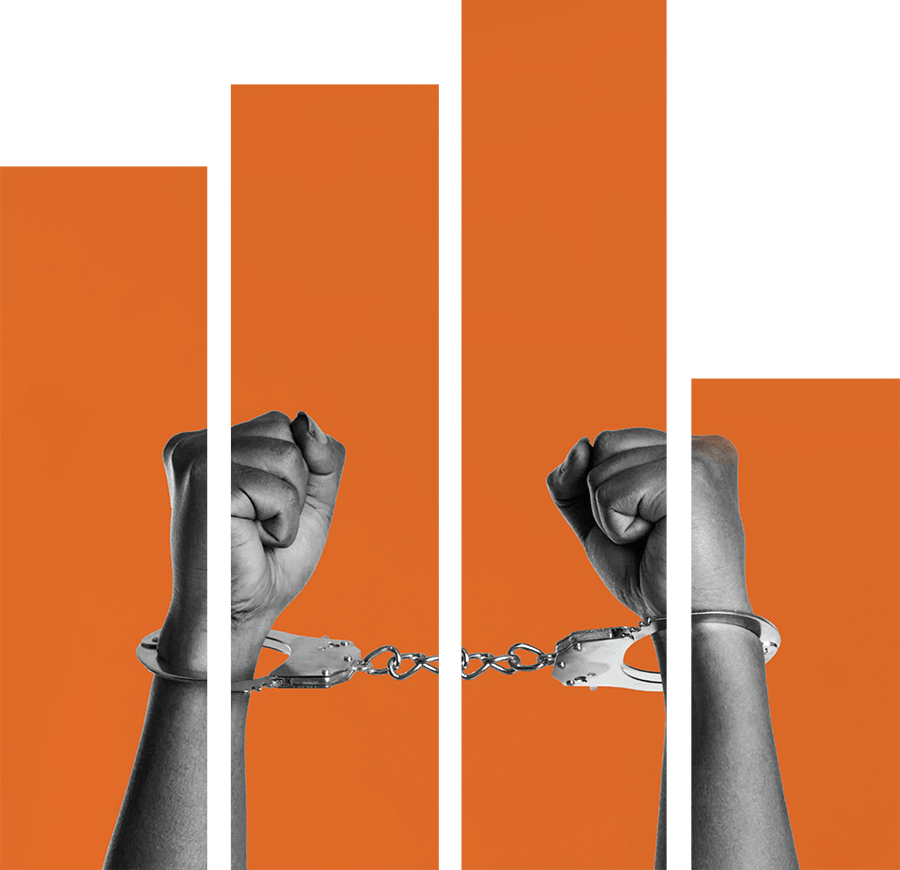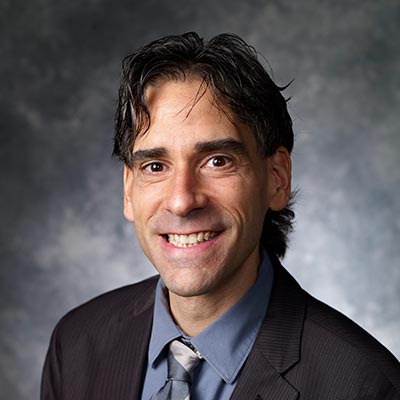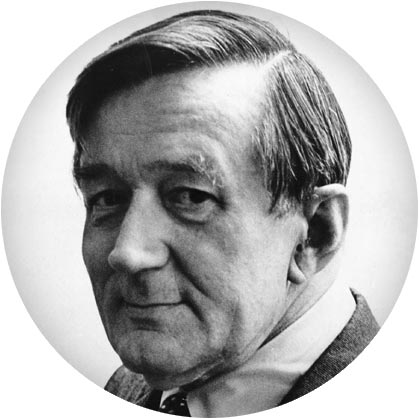The Polykarp Kusch Lecture Series
Concerns of the Lively Mind

Nothing Fake Here
Debunking the Immigration/Crime Relationship

Dr. Alex R. Piquero
Ashbel Smith Professor of Criminology
School of Economic, Political and Policy Sciences
Friday, April 12, 2019
2-3 p.m.
TI Auditorium, ECSS 2.102
The public is invited to attend this free lecture.
The notion that immigrants commit more crime than native-born Americans has been a common thread throughout political discourse and public policy. This has led to distorted perceptions that have helped to fuel anti-immigrant attitudes. Yet, the empirical knowledge base underlying the link between immigration and crime actually finds no support for the view that immigrants commit more crime.
In fact, it is quite the opposite.
Dr. Alex R. Piquero
Dr. Alex R. Piquero joined UT Dallas in 2011 and is Ashbel Smith professor of criminology and associate dean of graduate programs in the School of Economic, Political and Policy Sciences. He has published over 400 peer-reviewed articles in the areas of criminal careers, criminological theory and quantitative research methods. He is consistently ranked among the most published and cited criminologists in the world.
Putting his expertise to use, Piquero has given congressional testimony on evidence-based crime prevention practices in the area of early-family/parent training programs. He has provided counsel and support to several local, state, national, and international criminal justice agencies, including various police and correctional agencies. In 2015, United States Attorney General Eric Holder appointed him to the Office of Justice Programs Science Advisory Board.
Piquero has collaborated on several books on criminal justice, including Key Issues in Criminal Careers Research: New Analyses from the Cambridge Study in Delinquent Development, Handbook of Quantitative Criminology, and Offending from Childhood to Late Middle Age.
In 2018, he was named to The University of Texas System’s Academy of Distinguished Teachers. Piquero has been honored with numerous teaching awards, including the University of Florida’s College of Arts and Sciences Teacher of the Year Award, the University of Maryland’s “Top Terp” Teaching Award and The University of Texas System Board of Regents’ Outstanding Teaching Award. Piquero has also received the American Society of Criminology’s Young Scholar and E-Mail Mentor of the Year Awards, and was named a Fellow of both the American Society of Criminology and the Academy of Criminal Justice Sciences.
In addition to his membership in more than a dozen editorial boards of journals in criminology and sociology, Piquero has served in the following roles: executive counselor with the American Society of Criminology and member roles in the National Academy of Sciences Panel Evaluating the National Institute of Justice, the National Academy of Sciences Panel on Implementing a Juvenile Justice Reform Plan Using a Developmental Approach, National Academy of Science Panel on Modernizing the Nation’s Crime Statistics, National Academy of Sciences Panel on Revisiting Strengthening the National Institute of Justice, the Racial Democracy, Crime and Justice Network at Ohio State University, and the MacArthur Foundation’s Research Network on Adolescent Development and Juvenile Justice.

Dr. Polykarp Kusch
Dr. Polykarp Kusch was Nobel laureate in physics in 1955 and came to The University of Texas at Dallas in 1972.
At UT Dallas, he was Regental Professor and served on the physics faculty. His distinguished science career was complemented by his superb teaching. He delighted students with his presentations of physics experiments in his “Phenomena of Nature” classes.
Before coming to UT Dallas, Dr. Kusch had served as professor, vice president, provost and dean of faculties at Columbia University.
When he retired in 1982, UT Dallas established a program of annual lectures with the theme “Concerns of the Lively Mind” to honor Dr. Kusch.
Kusch Lectures
| Year | Speaker | Topic |
|---|---|---|
| 2025 | Richard K. Scotch | The Culture of Policymaking: How Personal Troubles are Translated into Public Issues |
| 2024 | Alain Bensoussan | Research in Management Science and the Importance of Mathematics |
| 2023 | Mark W. Spong | Robotics: Past, Present, Future |
| 2022 | Robert Stern | UTD Geologic Studies of the Mariana Trench and the Challenger Deep |
| 2021 | Denise Park | The Amazing Aging Mind: A Scientific Journey |
| 2019 | Alex R. Piquero | Nothing Fake Here: Debunking the Immigration/Crime Relationship |
| 2018 | Zsuzsanna Ozsváth | Our Journey Home: My Life and Work in Dallas |
| 2017 | Hobson Wildenthal | The Lifecycle of a Science from Conception to Metamorphosis |
| 2016 | Suresh P. Sethi | Conflicts in Supply Chains and Contracts that Restore Efficiency |
| 2015 | R. David Edmunds | Defending the Omaha Nation |
| 2014 | Ray H. Baughman | Nanotechnology for Fun and Profit |
| 2013 | Bhavani Thuraisingham | Reactively Adaptive Malware |
| 2012 | Aage Møller | The Malleable Brain |
| 2011 | Ram Rao | From Perfection to Retail Competition |
| 2010 | Rainer Schulte | Life as Translation |
| 2009 | John Hoffman | The Phoenix Mission to Mars |
| 2008 | George McMechan | 3-D Imaging of Earth’s Energy Resources |
| 2007 | Alice J. O’Toole | How We Represent and Recognize Faces |
| 2006 | Edward J. Harpham | Adam Smith’s Lost World of Gratitude |
| 2005 | Lawrence J. Overzet | Industrial Plasmas: Enabling the Future |
| 2004 | Clay Reynolds | A Cow Can Moo: The Irony of the Artistic Lie |
| 2003 | Roderick A. Heelis | Our Space Environment |
| 2002 | Rajiv Banker | Pay for Performance: Myth or Reality? |
| 2001 | Emily Tobey | The Bionic Ear: Connecting Technology to Societal Change |
| 2000 | Stephen Rabe | Debate Without End: Vietnam – 25 Years After |
| 1999 | Irving Hoch | Urban Population and the Quality of Life |
| 1998 | Hanna Ulatowska | Narrative in Human Experience |
| 1997 | A. Dean Sherry | From Molecules to Man: A History of Nuclear Magnetic Resonance (NMR) |
| 1996 | Hal Sudborough | Permutatios, Pancakes and Philogeny |
| 1995 | Robert Xavier Rodriguez | The Mystery of the Two Worlds |
| 1994 | Frank Bass | The Evolution of a General Theory of the Diffusion of Technological Innovations |
| 1993 | Bert Moore | Passions of the Mind |
| 1992 | Gerald Scully | Institutional Technology and Economic Progress |
| 1991 | Brian J. L. Berry | Deeper Societal Structures – Glimpses Through a Macroscope |
| 1990 | William Hanson | Our Solar System: A Perspective |
| 1989 | Robert Corrigan | Tragedy – The Tragic, and The Historical Moment |
| 1988 | Sandy Friel-Patti | The University in the Community |
| 1987 | R. Chandresakaran | Education of High Quality: Can This be Achieved? |
| 1986 | Wolfgang Rindler | Gravitation: From Newton to Einstein |
| 1985 | Anthony Champagne | Science and the Edges of Life |
© The University of Texas at Dallas
800 W. Campbell Rd., Richardson, TX 75080-3021